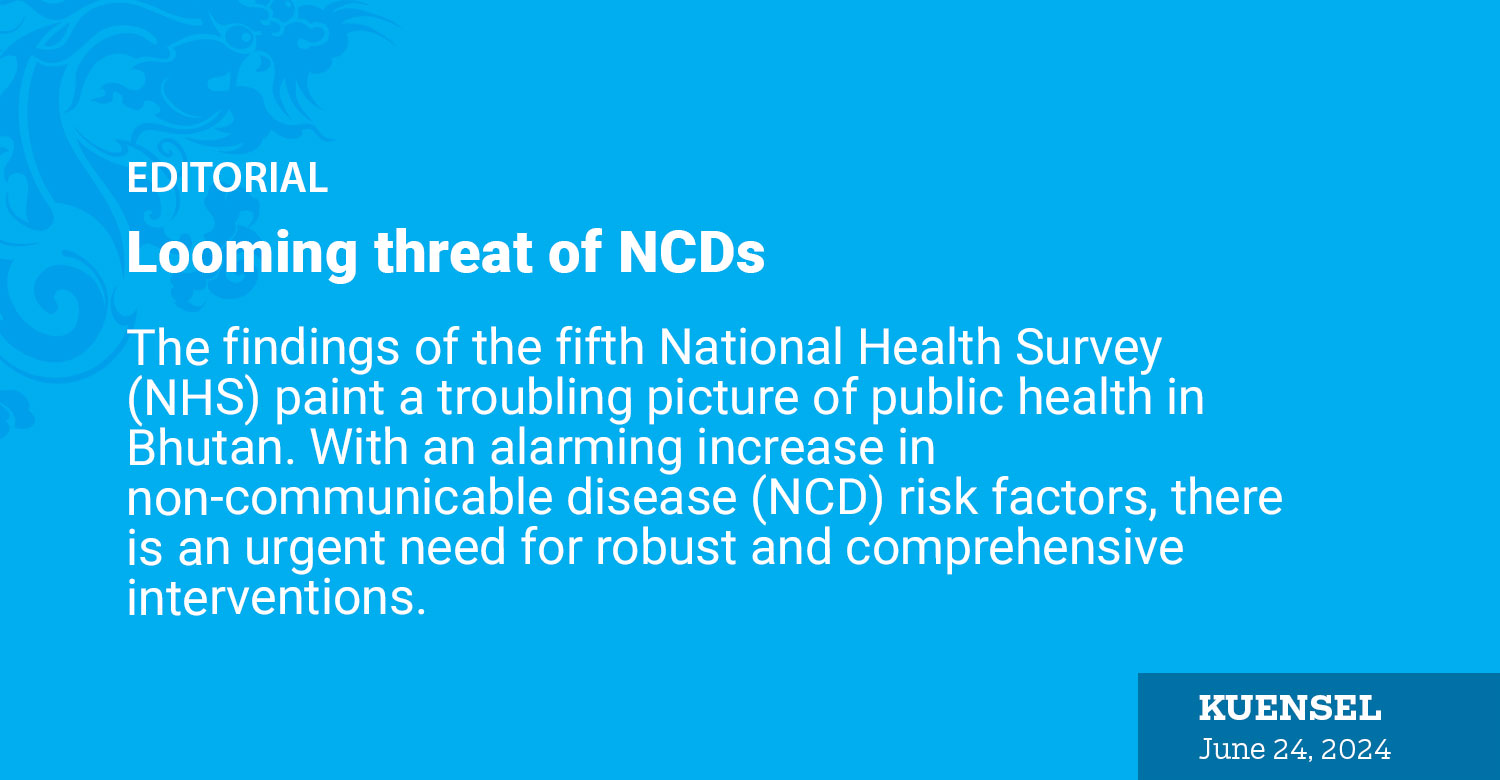
The findings of the fifth National Health Survey (NHS) paint a troubling picture of public health in Bhutan. With an alarming increase in non-communicable disease (NCD) risk factors, there is an urgent need for robust and comprehensive interventions.
The NHS highlights a rise in alcohol and tobacco consumption, excessive salt intake, and a worrying trend of physical inactivity among the Bhutanese population.
Alcohol consumption remains a significant concern, with 40.2 percent of men and 33.3 percent of women reporting regular use. The dangers of excessive alcohol intake are well-documented, leading to liver disease, cardiovascular issues, and various cancers. Despite this, effective measures to control alcohol abuse are conspicuously absent.
Similarly, tobacco usage, both smoked and smokeless, has seen a sharp increase from 25.2 percent to 34 percent between 2019 and 2023. The survey found that 21.6 percent of men and 6.1 percent of women smoke, while 26.6 percent of men and 12.3 percent of women consume smokeless tobacco. This surge in tobacco use is alarming, given its direct link to lung cancer, respiratory diseases, and heart conditions.
The consumption of areca nuts, another health risk factor, is also on the rise. These nuts are known to cause oral cancers and other serious health issues. The survey also reveals that the average daily salt intake among Bhutanese is 8.5 grams, far exceeding the World Health Organisation’s recommended limit of five grams. High salt intake is a primary cause of hypertension and cardiovascular diseases, further stressing the need for dietary reforms.
Physical inactivity is another major concern. The survey found that 18.3 percent of respondents, aged 15 to 69 years, did not meet the recommended levels of physical activity, with men (22.3 percent) being more inactive than women (14.7 percent). This sedentary lifestyle contributes to obesity and various metabolic disorders.
Alarmingly, 42.2 percent of men and 49.2 percent of women in Bhutan are either overweight or obese. This rising prevalence of obesity is a precursor to diabetes, heart disease, and other chronic conditions, placing a significant burden on our healthcare system.
The current scenario demands urgent interventions. First, there must be stricter regulations and higher taxes on alcohol and tobacco products to deter their consumption. Public awareness campaigns highlighting the risks of alcohol, tobacco, and areca nut use should be intensified. Educational programmes in schools and communities can play a crucial role in promoting healthier lifestyle choices.
Second, dietary guidelines need to be revisited. Reducing salt intake through public awareness and food industry regulations can help mitigate the risk of hypertension and related diseases. Encouraging the consumption of fresh fruits and vegetables over processed foods can significantly improve public health.
Third, promoting physical activity is essential. Infrastructure such as parks, sports facilities, and pedestrian-friendly spaces should be developed to encourage active lifestyles. Workplace wellness programs can motivate employees to incorporate physical activity into their daily routines.
The findings of the survey should serve as a wake-up call for all stakeholders. There is a need for comprehensive and sustained interventions.












